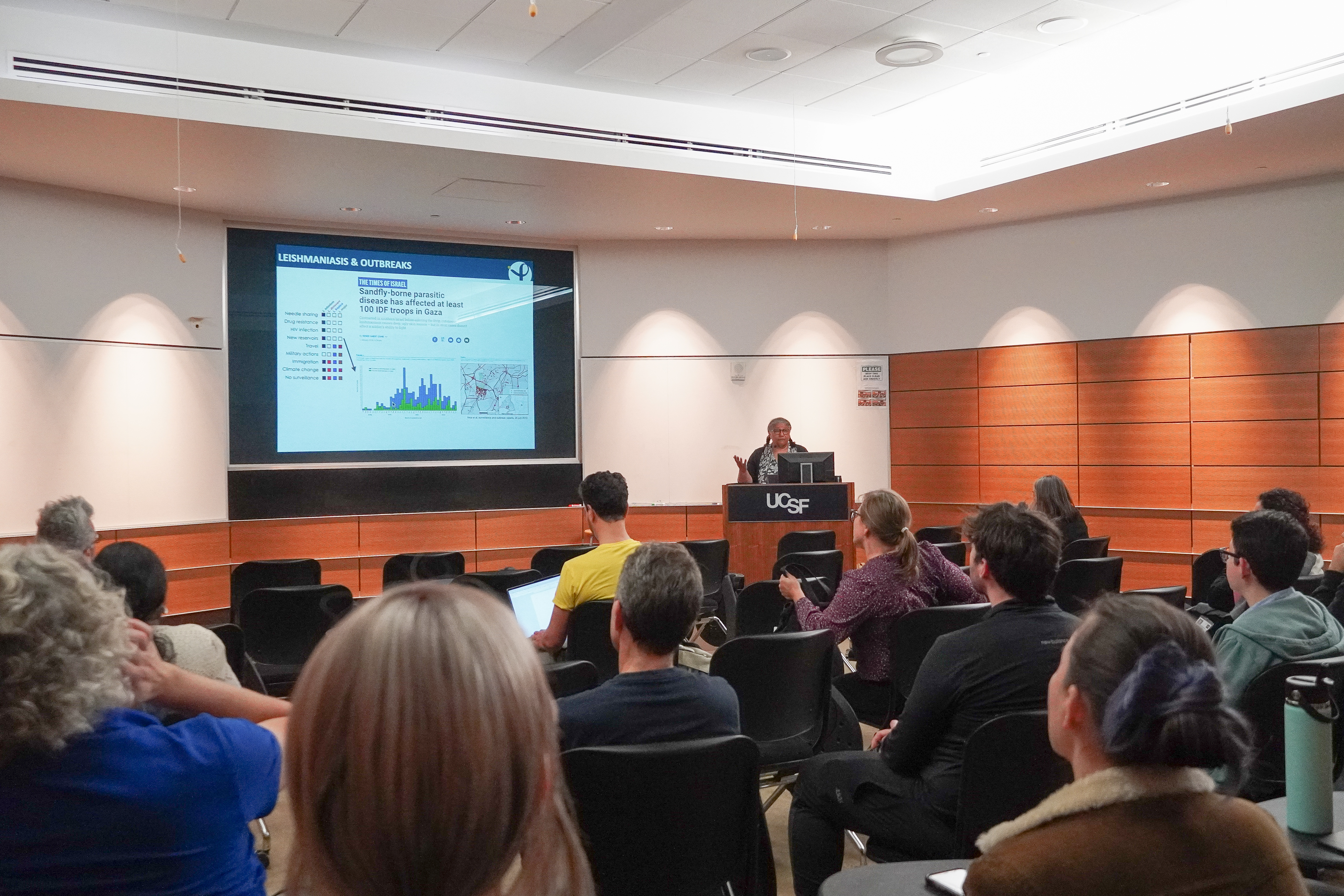
The Institut Pasteur–UCSF QBI "Faculty Mini-Sabbatical Program" is designed to exchange top academic talents from the Institut Pasteur and the University of California San Francisco for one- to three-month visits to build knowledge and new partnerships. The purpose of sabbatical leave is to provide an opportunity for faculty members to engage in scholarly, creative, professional, research, or other academic activities that will enhance the faculty member's further contributions to their institution and the world in the name of scientific research and excellence towards pandemic preparedness. In this sense, the visiting scientists will get the opportunity to interact with leading scientists from either institution on their research programs.

Najma Rachidi, Principal Investigator of the Signaling and Host-parasite Interaction Group at the Institut Pasteur, provides a reflection of her time at UCSF as part of the Mini Sabbatical Program.
My research focus is double: firstly, to understand how Leishmania evades the immune defenses of macrophages and thrive within them; secondly, to develop novel therapeutic approaches to combat Leishmania. To achieve these goals, we are investigating the mechanisms by which the parasite hijack host cell signaling through the secretion of Leishmania casein kinase 1.2. Using this secreted kinase as a target, we are actively engaged in drug discovery efforts.
Focusing on a disease that impacts millions of individuals annually, with limited safe treatment options, serves as a great source of motivation. Consequently, our efforts revolve around converting every discovery into a prospective cure. The awareness that our work might impact lives is extremely fulfilling.
I've chosen laboratories that investigate host-pathogen interactions, with a specific emphasis on cell signaling. I'm collaborating with the Nevan Krogan lab, which employs omics methodologies to unravel how pathogens (Bacteria and viruses) reshape their host cells, and the Shaeri Mukherjee lab, which investigates how Legionella utilizes host kinases to modulate crucial pathways for its survival. Our collaboration adds another dimension by investigating eukaryotic pathogens (parasites), which have evolved unique strategies to achieve the fundamental goal shared by all pathogens: survival within their host cells.
Science thrives on collaboration and the exchange of ideas among scientists with diverse backgrounds and scientific approaches. For instance, QBI excels in proteomics and phosphoproteomics analyses, whereas Pasteur displays significant expertise in genomic and transcriptomic analyses. Thus, the projects undertaken at QBI complement those at Institut Pasteur.
Face-to-face interaction is crucial because video conferences often follow a rigid agenda, whereas the most fruitful discussions often arise during informal conversations that allow for exploration of unrelated projects. Moreover, being present on-site provide opportunities for more in-depth discussions and for interaction with scientists whom we might not have connected with otherwise.
I will maintain the three connections initiated while I was at QBI as we have ongoing projects. With B. Polacco and N. Meyerhöfer, we are in the process of establishing a cartography of active and inactive kinases during Leishmania infection and their interconnections based on the phosphoproteome analyses conducted in Institut Pasteur. We also have an ongoing collaboration with Danielle Swaney to establish the host interactome of ten selected Leishmania secreted proteins, which will be the first parasite interactome done at QBI. Finally, we are also collaborating with Shaeri Mukherjee, to look at the impact of different pathogens on host phosphoproteomes, particularly focusing on CK1 signaling pathways.